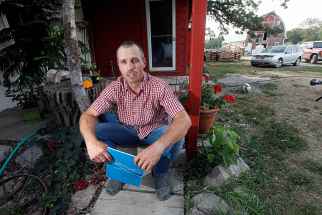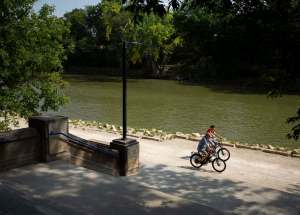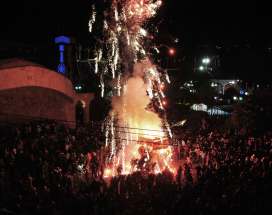Wake up and smell the smoke This is what climate change looks like
Read this article for free:
or
Already have an account? Log in here »
To continue reading, please subscribe:
Monthly Digital Subscription
$0 for the first 4 weeks*
- Enjoy unlimited reading on winnipegfreepress.com
- Read the E-Edition, our digital replica newspaper
- Access News Break, our award-winning app
- Play interactive puzzles
*No charge for 4 weeks then price increases to the regular rate of $19.00 plus GST every four weeks. Offer available to new and qualified returning subscribers only. Cancel any time.
Monthly Digital Subscription
$4.75/week*
- Enjoy unlimited reading on winnipegfreepress.com
- Read the E-Edition, our digital replica newspaper
- Access News Break, our award-winning app
- Play interactive puzzles
*Billed as $19 plus GST every four weeks. Cancel any time.
To continue reading, please subscribe:
Add Free Press access to your Brandon Sun subscription for only an additional
$1 for the first 4 weeks*
*Your next subscription payment will increase by $1.00 and you will be charged $16.99 plus GST for four weeks. After four weeks, your payment will increase to $23.99 plus GST every four weeks.
Read unlimited articles for free today:
or
Already have an account? Log in here »
Hey there, time traveller!
This article was published 23/08/2018 (2667 days ago), so information in it may no longer be current.
VANCOUVER — In case you were wondering, this is what climate change looks like.
It was nearly 7:30 a.m. Wednesday, about an hour after the official sunrise and the sun was still having trouble announcing its arrival.
I was on the first ferry out from Swartz Bay on Vancouver Island to the Tsawwassen terminal on the mainland. As I reached the observation deck near the bow of the Coastal Celebration, I was immediately struck by how eerily dusky and dark the sky remained at this hour of the morning. It didn’t take long to see why.
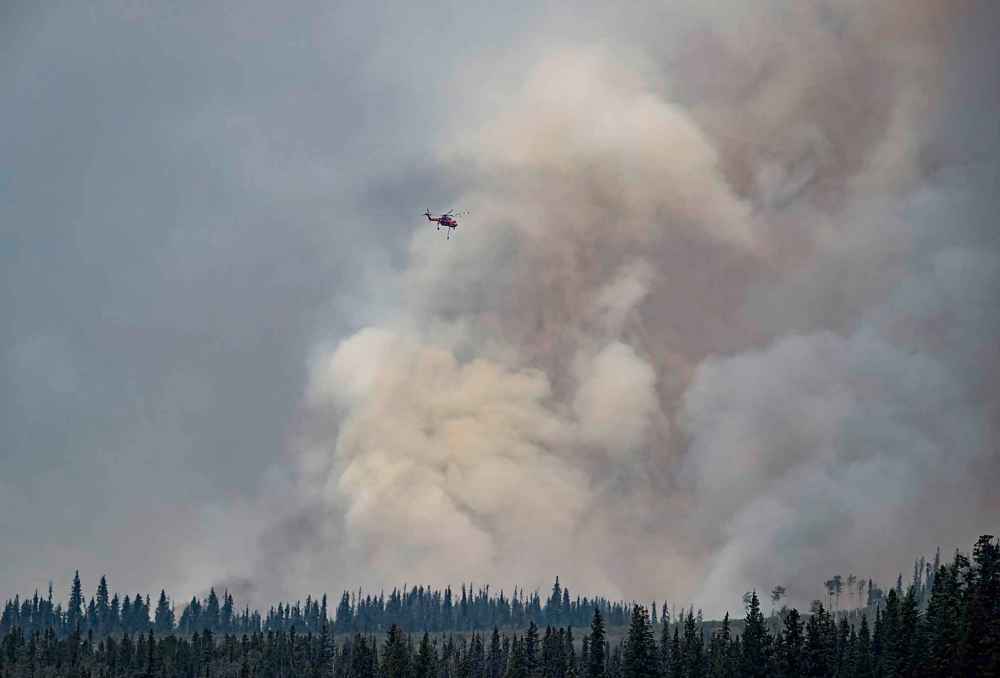
Off the starboard side of the ferry, the sun hung in the sky like a glowing, neon orange penlight. It was a fraction of its normal size, lacking any of its daybreak intensity or warmth. A faint orange tail reflected off the water as it struggled to produce daylight.
It’s at that point that I started to put two and two together. This wasn’t some sort of late summer astronomical phenomenon. It was the smoke.
My eyes stung, my sinuses throbbed and thick phlegm churned in the back of my throat. Even here, on the open water of the Strait of Georgia — still 30 minutes away from Tsawwassen — the smoke from nearly 600 wildfires was present and imposing its formidable will to produce what can only be described as a partial eclipse of the sun.
Even if they don’t read newspapers or watch TV news, most Manitobans know about the B.C. and Alberta wildfires that have raged this summer, largely because the smoke has been so thick and pervasive it has blown all the way across the Prairies and polluted the air in our province. And while that has been no picnic, it’s nothing like the experience of being near the source of the smoke.
British Columbians are still stunned by the extent and willpower of the smoke and accompanying drought. The province has issued a state of emergency due to the virulent nature of the fires. Reduced visibility and declining air quality have cancelled flights in and out of the Lower Mainland, and have triggered a rash of respiratory problems, threatening the health of vulnerable populations such as the homeless.
More than 20,000 people have been evacuated or are on evacuation notice. The B.C. government has spent more than $200 million fighting this season’s wildfires and expects that to climb considerably higher before cooler fall temperatures, and perhaps some rain, bring some relief.
And while Vancouver and other coastal communities are suffering, it doesn’t compare to the density of the smoke inland. On a day trip through Abbotsford, which is about 90 kilometres east of Vancouver, the smoke was so thick that it was impossible to see the coastal mountains on either side of the highway.
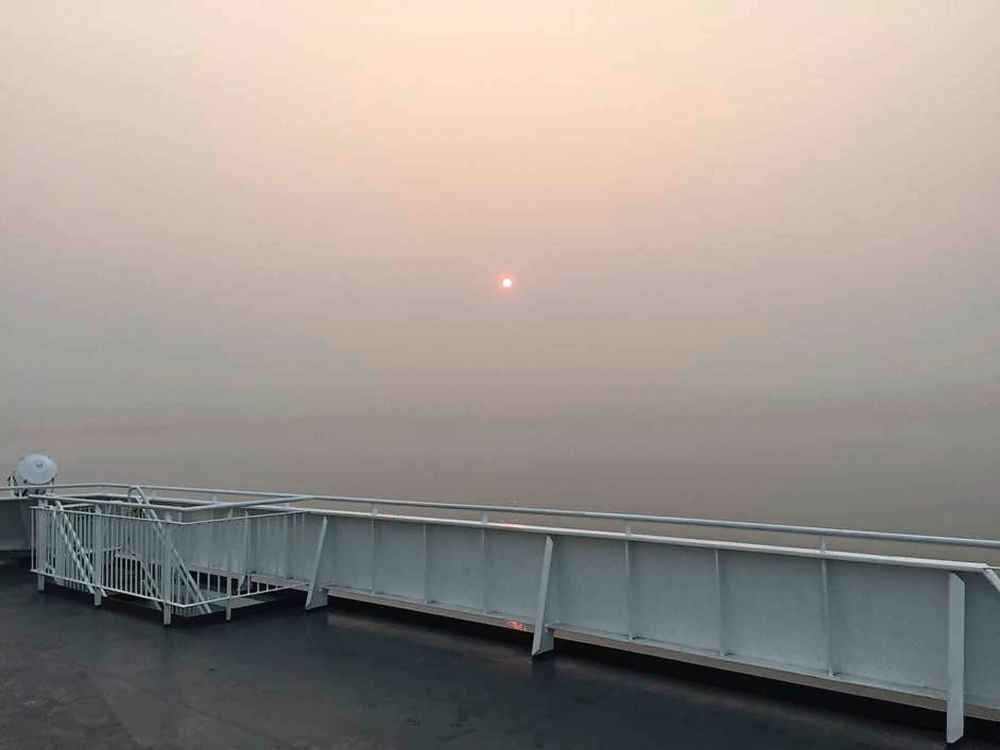
The source of this grief is most definitely the smoke from the wildfires, but the underlying cause is climate change.
Naysayers will dispute the role that climate change has played in this slow, painful natural disaster. They will point out that wildfires are nothing new, and that these blazes are nature’s way of burning off decaying forests and replacing them with new and more resilient ones.
Those folks need to wake up and smell the forest fire smoke.
This is the third summer in the last four where wildfires have hammered B.C., a period marked by a pandemic of similar disasters around the world.
Researchers at the University of Alberta say there are now regularly twice as many wildfires in Canada as occurred in the 1970s, a trend caused by slowly increasing temperatures and regular drought conditions brought on by declining precipitation.
It’s a pattern repeated all over the world, where the number of fires, and the amount of land being consumed by them, has also doubled. The fires come at a time when hot and dry conditions are becoming the norm all over the globe. According to the U.S. National Oceanic and Atmospheric Association, the number of heat records set around the world this summer number in the thousands.

Wildfires are of particular concern and not just because their effects can be felt thousands of kilometres away. The fine particulates that are forced into the atmosphere from a wildfire create what climate scientists call a “feedback loop.” This occurs when the smoke and the dangerous particulates it spews into the air trap even more heat in the atmosphere and thus amplify the effect of climate change.
The result is more heat, more drought, more fires. Disaster begets more disaster until, as scientists have warned us, we reach a point of no return. Travelling through British Columbia this past week, it’s hard not to think that we’re already there.
In fairness, there are quite a few people in this country, and around the world, who insist there is no calamitous environmental threat, even with the wildfire smoke slapping them across the face.
Premiers in Saskatchewan and Ontario continue to rail on about the federal carbon tax as a crime against the economy. Neither seems to worry that carbon pricing, as imperfect a solution as it is, will not fix our planet. We’d need to do much more painful, more profound things to slow and possibly reverse the warming of the planet.
The real danger of condemning any and all attempts to price carbon — and thereby force us to adopt carbon-free options — is that it provides quiet comfort to those people who are living in the comforting swaddle of ignorance.
During a recent Saturday, in the middle of our last heatwave, I went out to do some errands. I started counting the number of people I saw sitting in their cars, windows up, engine idling so they could keep the air conditioning going full bore. In most instances, they were parked within a few feet of a building that was air-conditioned. The final count was 13 during a two-hour errand run.
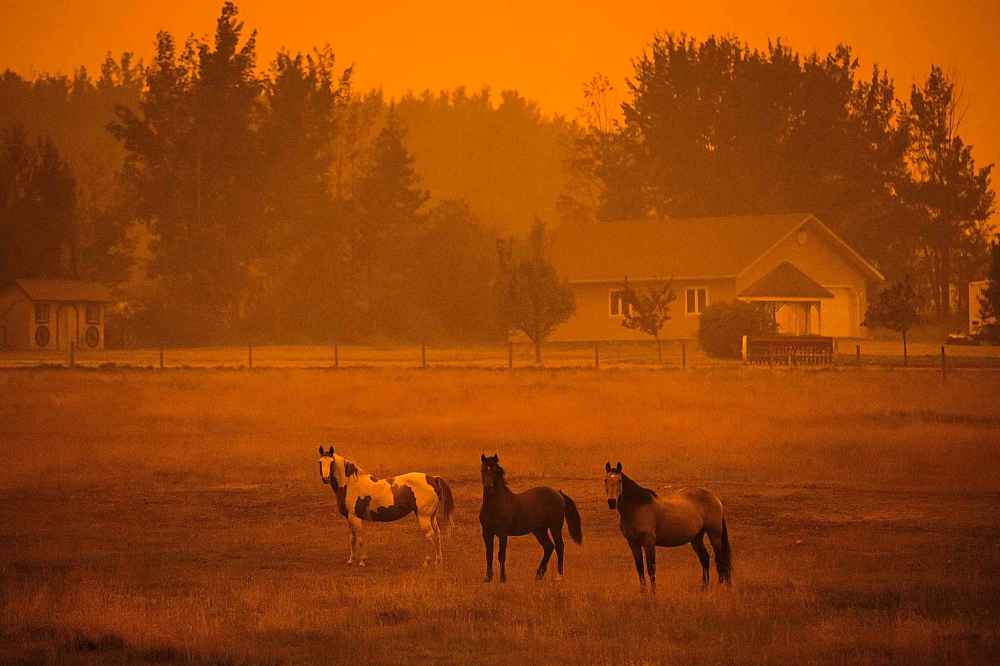
There are few better ways to show our complete disdain for the realities of climate change than leaving our cars idling unnecessarily so we can cool ourselves off from the extreme heat that is, in large part, a result of climate change.
Continue idling if you must. Ignore the record-setting heat, the drought conditions, the smoke from the wildfires. But just remember, this is what climate change looks like. And you all saw it coming.
dan.lett@freepress.mb.ca

Born and raised in and around Toronto, Dan Lett came to Winnipeg in 1986, less than a year out of journalism school with a lifelong dream to be a newspaper reporter.
Our newsroom depends on a growing audience of readers to power our journalism. If you are not a paid reader, please consider becoming a subscriber.
Our newsroom depends on its audience of readers to power our journalism. Thank you for your support.
History
Updated on Thursday, August 23, 2018 7:27 PM CDT: Minor typos fixed



